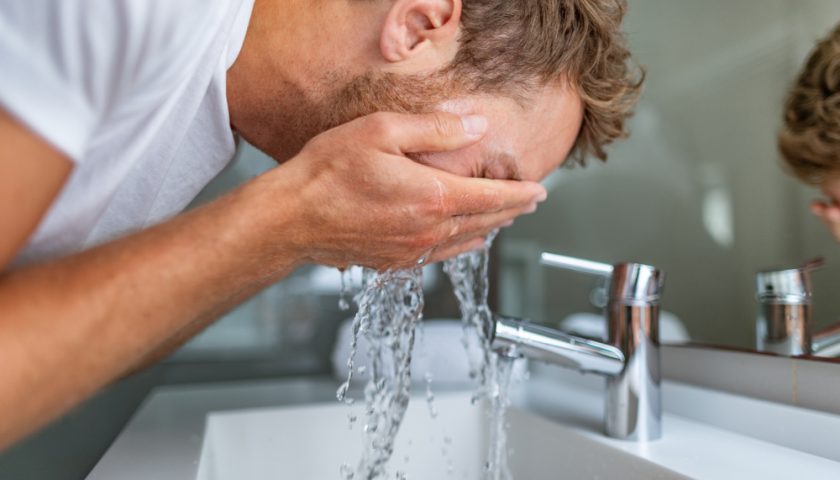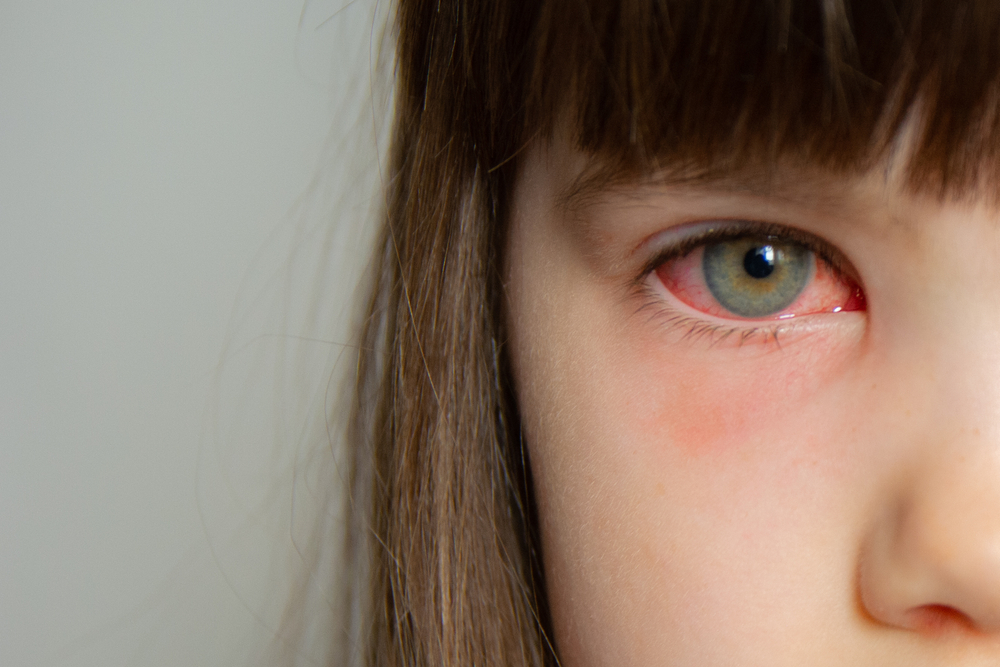Conjunctivitis, sometimes known as ‘pink eye’, is an infection or swelling of the conjunctiva – a thin, transparent membrane that covers the white area of the eye and sits over the inner surface of the eyelid.
The blood vessels in your conjunctiva become irritated when you have pink eye. This causes your eye to get red or pink, which is a sign of conjunctivitis.
Read further to have complete detail of pink eye infection.
Table of Contents
How DO I Know If I Am Getting Pink Eyes? Symptoms to Look for
Different varieties of pink eye can have slightly different symptoms, but it’s crucial to see a doctor if you start to notice any of the following:
- Eyes with a pink or crimson tone
- Itchy eyes
- Watery eyes with abnormal amount of tears
- Swelling in eyelids
- Eyelid swelling
- Blurred vision
- Painful eyes
- Increased sensitivity to light
- Eyelashes stuck together in the morning because of thick yellow discharge from eyes
Types and Causes of Pink Eye
Pink eye can be classified into three categories:
1- Infectious Conjunctivitis
There are two main varieties of infectious pink eye include:
- Bacterial pink eye: It can be transmitted to one or both eyes by personal contact, poor hygiene (touching eyes with dirty hands), or the use of infected makeup or facial creams.
- Viral pink eye: Viruses associated with the common cold, upper respiratory tract illness, and, in rarer cases, herpes and sexually transmitted diseases can cause infection.
2- Allergic Conjunctivitis
Seasonal allergies are the most common cause of allergic pink eye. It develops when eyes come into contact with a substance to which they are allergic, such as pollen.
In addition, if you wear hard contact lenses or soft contact lenses that aren’t updated frequently enough, you may get an allergic kind of pink eye called large papillary conjunctivitis.
3- Chemical Conjunctivitis
Irritants such as chlorine in pools, air pollution, and other pollutants can also cause pink eyes.
Get to know about habits that affect eyesight.
Conjunctivitis Treatment
Conjunctivitis treatment is done differently depending on the cause. These include:
Bacterial Conjunctivitis Treatment
According to the top reviewed Ophthalmologist in Lahore, Dr. Muhammad Saad Aziz ” Antibiotics are the most common treatment for bacterial conjunctivitis.” Adults, on the whole, prefer eye drops. On the other hand, ointment is a better option for children as it is easy to administer.
In case of bacterial infections, your doctor may prescribe Novidat tablets to relieve the symptoms.
NOTE: Your symptoms will most likely start to fade in a few days if you take antibiotic medicine, but it’s critical to finish the entire prescription to avoid pink eye recurrence.
Viral Conjunctivitis Treatment
There are no specific therapies for conjunctivitis caused by a viral infection. The virus is fought by your body on its own. A cool, moist towel placed over your eyes can help pink eye infected people feel more at ease.
Allergic Conjunctivitis Treatment
In order to cure pink eye caused by an allergen, your doctor would most likely prescribe an antihistamine to reduce irritation. Antihistamines such as loratadine and diphenhydramine are available over-the-counter. Antihistamine eye drops and anti-inflammatory eye drops are two other options.
Chemical Conjunctivitis Treatment
If you have a chemical pink eye, you can relieve symptoms by rinsing your eye with saline. If the condition is serious enough, topical steroids may be administered.
Also know about how to get rid of puffy eyes.
Is Pink Eye Contagious?
Pink eye, both bacterial and viral, is extremely contagious. It is easily transmitted from one person to another. For example, if someone with viral pink eye contacts their eye and then touches your hand, and you then touch your eyes, you may contract pink eye.
Pink eye is contagious for as long as the individual is experiencing symptoms.
How Can You Prevent Conjunctivitis?
One of the most effective ways to prevent and stop the spread of conjunctivitis is to maintain proper hygiene. How? To know that read further:

Preventive Measure When You Have Conjunctivitis
If you have conjunctivitis, you can help prevent it from spreading to others by doing the following steps:
- Wash your hands regularly with soap and warm water for at least 20 seconds before and after cleaning, or administering eye drops or ointment to your infected eye.
- Touching or rubbing your eyes is not a good idea. Avoid it. This could aggravate the problem or transmit it to your other eye.
- Using a clean, wet washcloth or fresh cotton ball, cleanse any discharge from around your eyes multiple times a day using clean hands.
- Pillowcases, sheets, washcloths, and towels should be washed frequently in hot water with detergent, and your hands should be washed after handling such items.
- Wearing contact lenses is not recommended until your eye doctor confirms it’s safe to do so.
- Clean your eyeglasses, being cautious not to contaminate anything that may be shared by others (such as hand towels).
- Avoid sharing pillows, washcloths, towels, eye or face makeup, makeup brushes, or eyeglasses.
- Don’t use swimming pools.
When You Are Around Someone with Conjunctivitis
If you’re around someone who has conjunctivitis, take these precautions to avoid becoming infected:
- Wash your hands after coming into contact with an infected person or the products he or she uses, such as applying eye drops or ointment to an infected person’s eye(s) or putting their bed linens in the washer.
- Do not share pillows, washcloths, eye or face makeup, makeup brushes, contact lenses, contact lens storage cases, or eyeglasses that have been used by an infected person.
Preventive Measure to Avoid Getting Sick Again
Furthermore, if you have conjunctivitis, you can take actions to avoid reinfection once the infection has cleared up:
- Any eye or face makeup, as well as any makeup brushes that you used while infected, should be thrown away and replaced.
- Discard any disposable contact lenses or cases you may have worn while your eyes were infected.
- Clean your eyeglasses and cases from when you were infected.
